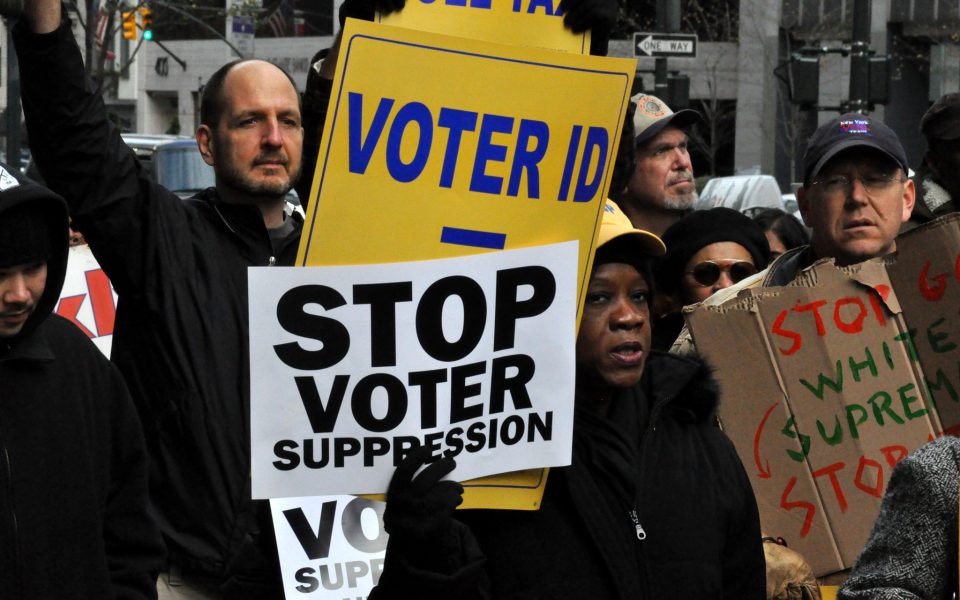Featured photo: photo by Michael Fleshman via Flickr (CC BY-SA 2.0)
The turning of the calendar makes it 10 years that we have been talking about voter ID in the state of North Carolina. It was marked last week, near enough to its anniversary, with a state Supreme Court ruling declaring the voter ID requirement to be illegal because — duh — it seems designed specifically to disenfranchise Black voters. Which of course it was.
The first voter ID bill of the modern era came along in 2013, after the Republican majority had comfortably asserted itself in the General Assembly. It was passed immediately after the US Supreme Court struck down a key provision of the Voting Rights Act, one that prohibited North Carolina, Mississippi and a handful of other states with histories of racist election laws from passing new ones without federal consent. And it never fully took effect because of all the lawsuits filed against it. It was struck down in 2016 by a federal three-judge panel, which found that, among other crimes, “[T]he General Assembly enacted legislation that restricted voting and registration in five different ways, all of which disproportionately affected African Americans.”
Undeterred, the GA sought to enshrine voter ID into the state Constitution with a voter referendum, which passed in 2018. But the law the Republicans wrote again targeted African Americans, and so it went back to court where it has languished for four more years.
Friday’s opinion expressed the exact same themes that have been brought up in the past: that it inordinately targets Black voters, that the problem it purports to solve — voter fraud — barely exists and that voter ID would not prevent the cases that have been documented in NC.
“[G]iven the rarity of voter fraud in North Carolina,” Justice Anita Earls wrote in the opinion, “a less restrictive law could have been sufficient to deter voter fraud and promote voter confidence in elections had this goal been the law’s only actual purpose.”
Will this be the last time NC’s voter ID law will be adjudicated? Certainly not. GOP leaders say they have one in the works for the next session, which will take place after the state Supreme Court switches to a Republican majority.
Around and around we will go.
Join the First Amendment Society, a membership that goes directly to funding TCB‘s newsroom.
We believe that reporting can save the world.
The TCB First Amendment Society recognizes the vital role of a free, unfettered press with a bundling of local experiences designed to build community, and unique engagements with our newsroom that will help you understand, and shape, local journalism’s critical role in uplifting the people in our cities.
All revenue goes directly into the newsroom as reporters’ salaries and freelance commissions.


Leave a Reply